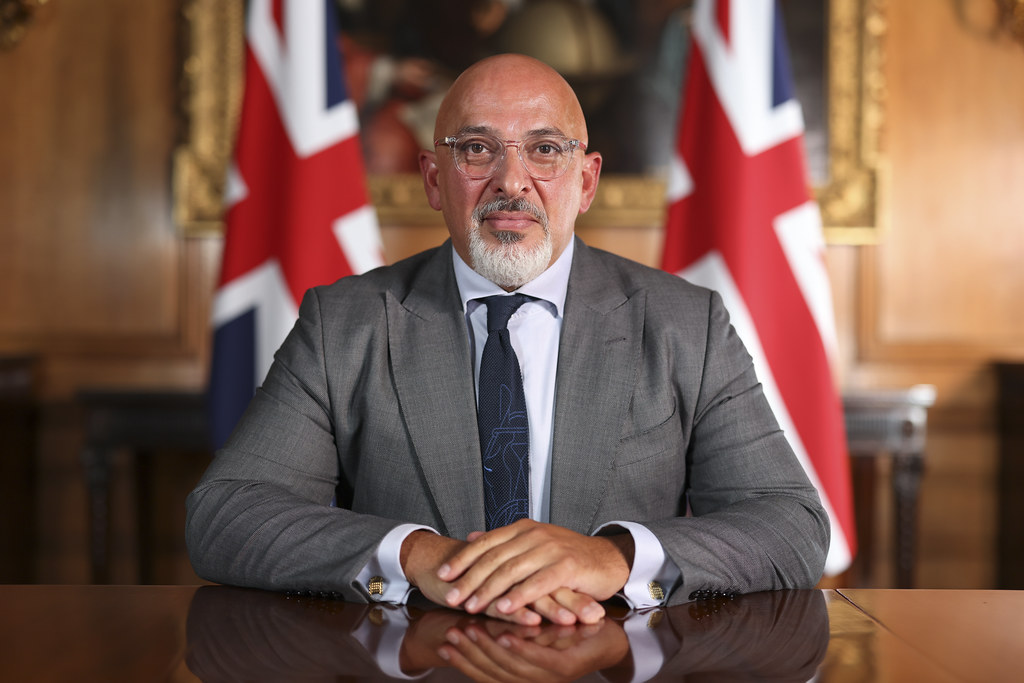SEND Review green paper: Vision for a single, national SEND and alternative provision (AP) system – Sector response

The Department for Education (@EducationGovUK) launches its #SEND Review today (29 Mar).
Better support for children and young people with special educational needs and disabilities (SEND) is at the heart of a new national plan to level up opportunities, with a key focus on ending the postcode lottery that leaves too many with worse outcomes than their peers.
The Government’s SEND and alternative provision green paper, published today (Tuesday 29 March), sets out its vision for a single, national SEND and alternative provision (AP) system that will introduce new standards in the quality of support given to children across education, health and care.
The ambitious green paper is the result of the SEND Review, commissioned to improve an inconsistent, process-heavy and increasingly adversarial system that too often leaves parents facing difficulties and delays accessing the right support for their child.
The plans to reform the system will be open for a 13-week public consultation, giving families frustrated by the existing, complicated and bureaucratic system of support the opportunity to shape how a new system will work in the future – and give them confidence that their local school will meet their children’s needs so they can achieve their full potential.
A summary of the key points, and the major proposals in the SEND and alternative provision green paper:
- Better support for children and young people with special educational needs and disabilities (SEND) is at the heart of a new national plan to level up opportunities, with a key focus on ending the postcode lottery that leaves too many with worse outcomes than their peers.
- The Government’s SEND and alternative provision green paper, published today (Tuesday 29 March), sets out its vision for a single, national SEND and alternative provision (AP) system that will introduce new standards in the quality of support given to children across education, health and care.
- The plans to reform the system will be open for a 13-week public consultation, giving families frustrated by the existing, complicated and bureaucratic system of support the opportunity to shape how a new system will work in the future – and give them confidence that their local school will meet their children’s needs so they can achieve their full potential.
Detailed proposals in the SEND and alternative provision green paper include:
- Setting new national standards across education, health and care to build on the foundations created through the Children and Families Act 2014, for a higher performing SEND system;
- A simplified Education, Health and Care Plan (EHCP) through digitising plans to make them more flexible, reducing bureaucracy and supporting parents to make informed choices via a list of appropriate placements tailored to their child’s needs, meaning less time spent researching the right school;
- A new legal requirement for councils to introduce ‘local inclusion plans’ that bring together early years, schools and post-16 education with health and care services, giving system partners more certainty on who is responsible and when;
- Improving oversight and transparency through the publication of new ‘local inclusion dashboards’ to make roles and responsibilities of all partners within the system clearer for parents and young people, helping to drive better outcomes;
- A new national framework for councils for banding and tariffs of High Needs, to match the national standards and offer clarity on the level of support expected, and put the system on a financially sustainable footing in the future;
- Changing the culture and practice in mainstream education to be more inclusive and better at identifying and supporting needs, including through earlier intervention and improved targeted support;
- Improving workforce training through the introduction of a new SENCo NPQ for school SENCos and increasing the number of staff with an accredited level 3 qualification in early years settings; and
- A reformed and integrated role for alternative provision (AP), with a new delivery model in every local area focused on early intervention. AP will form an integral part of local SEND systems with improvements to settings and more funding stability.
The proposals are backed by new funding to implement them, worth £70 million. This will build on the £9 billion government investment in local authority high needs budgets next year and £2.6 billion for new places for children with SEND over the next three years.
Taken together, this is a significant, transformational investment for children who need the most support, sitting alongside recent increases to the respite and Supported Internship programmes, as part of measures to invest in the SEND system and in helping children achieve.

Education Secretary, Nadhim Zahawi, said:
“Every child has the right to excellent education – particularly those with special educational needs and disabilities, who often need the most support.
“We are launching this consultation because too often this isn’t the case. We want to end the postcode lottery of uncertainty and poor accountability that exists for too many families, boost confidence in the system across the board and increase local mainstream and specialist education to give parents better choice.
“I want to make sure everyone knows what to expect, when to expect it and where the support should come from. I know there are strongly held views and I want to hear from as many parents, teachers and children with experience of the system so they can help shape a future policy that works for them.”
The proposals, part of a package of education measures being announced this week and following on from the Schools White Paper, outline a vision for a more inclusive, consistent, transparent and accountable SEND system.
The emphasis is on providing the right support to children in the right place and at the right time by:
- boosting confidence in the system and raising standards all over the country;
- changing the culture of mainstream education, putting it on a par with specialist settings;
- streamlining the system from the early years to post-16 so that every pupil receives a good foundation in support all the way through their education;
- requiring the different services involved in providing support for children with SEND, from schools and councils to healthcare providers, to work more closely together increasing accountability and scrutiny; and
- ensuring the SEND system is financially sustainable by making sure funding is targeted where it makes the most difference.

Secretary of State for Health and Social Care, Sajid Javid said:
“Every child, regardless of their background, should be able to access the education they need and deserve. These plans will level up opportunities for children and young people with special educational needs.
“It is vital that children, families and teachers have confidence in our education system, no matter where they live; we need to hear from them so this new national, integrated system works for the people who need it most.”
Capital funding allocations worth £1.4 billion have also been published today for councils to pay for new places and improve existing provision for children and young people with SEND, or those who will benefit from high-quality AP. This funding will help stabilise local systems ahead of any further legislation from the green paper proposals.
The Government will also look to approve up to 40 new special and AP free schools in regions where they are most needed. This is in addition to over 60 special and AP free schools already in the pipeline.
Low-income families with seriously ill or disabled children will be further supported through investment of £27.3 million next year. This funding will help pay for equipment, goods or services – from washing machines and fridges to sensory and educational equipment that they might not otherwise be able to afford.
Over £10 million will also be invested to train over 200 more educational psychologists from September, to give advice and input into EHCP assessments, advise schools on how to support pupils with SEND and offer wider wellbeing support to them, their families and teachers.
The Government will work with Ofsted and the Care Quality Commission to strengthen ability to hold local areas to account against these standards.
Dame Christine Lenehan, Director of the Council for Disabled Children, said:
“I am very happy to welcome this green paper. It shows that Government has listened to the frustration across the sector and the toll that has taken on parents, children and professionals alike.
“The green paper proposes a welcome framework for change which should support children and families getting the services and support they need close to home. However, this is just a framework and so the consultation response to it will be key as it develops into a programme that delivers the change we need to see. We hope that everyone takes the opportunity to respond and support that happening.”
Mrunal Sisodia and Tina Emery, Co-Chairs of the National Network of Parent Carer Forums, said:
“The SEND Green Paper has been a long time in coming. We welcome its publication and are pleased that the challenges faced by families, the problems in the current system and the underlying causes are so clearly recognised. This represents an opportunity to reset the SEND system and improve the opportunities and outcomes for children and young people with SEND. We encourage all parent carers to engage in the consultation processes – it is vital that the voice of families continues to be heard if we are going to make the changes we need to see.”
Mark Vickers, Chair of the Alternative Provision and SEND Multi-Academy Trust CEO Network, said:
“The proposals in the SEND and AP Green Paper provide a welcome opportunity to set out the important role that alternative provision can play by operating within a continuum of inclusive practice, centred on the individual needs of children and young people to ensure high quality outcomes.
“These proposals are an important first step in terms of providing much needed funding stability for the sector.”

Dame Rachel de Souza DBE, Children’s Commissioner for England, said:
“I really welcome the Special Educational Needs and Alternative Provision Green Paper, in particular the focus on children’s experiences and outcomes. We know from the largest-ever survey of over half a million children ‘The Big Ask‘ that children with Special Educational Needs or a disability, were ambitious for their future and for themselves.
“These children deserve a system that matches that ambition, they or their parents shouldn’t have to go to great lengths or adversity to get the support they need. These children should receive high quality support in school, where they are likely to be happier than the overall cohort and doing better. And a consistent national approach will help to overcome the local lottery in variations of quality of support.
“The Green Paper proposals will help to improve these children’s lives, and alongside a system that dovetails with children’s social care and the Schools White Paper we will have all the pieces of the jigsaw to making the system better for them. It is on all of us working with and for children to help create a system that facilitates this, and we must now listen to as many children and families as possible to make sure that these proposals work for them.”
Sector Response
Dr Louise Karwowski, Director of Education at Cognassist said:
“The SEND Review has been a long time coming for many and is a significant moment for all of us working to raise standards and outcomes for SEND individuals. The review states that it “consistently hears challenges that are driven by a vicious cycle of late intervention, low confidence from parents, carers and providers…. Children and young people’s needs are identified late, then escalate and become entrenched.”
“At Cognassist, we identify a significant number of learners whose cognitive learning needs have not been picked up during their school years. We wholeheartedly support a proactive approach to identifying learning needs which enables the immediate implementation of effective interventions at every level of education. I would add that alongside parents, carers and providers’ confidence being low, it is crucial to consider learners’ confidence levels here, as they are also likely to lack confidence; without tailored support, this can directly impact their desire to succeed and have a long-term impact on an individual’s perception of their own ability to learn and reach their full potential.
We agree that the answer needs to be “an inclusive system, starting with improved mainstream provision that is built on early and accurate identification of needs, high-quality teaching of a knowledge-rich curriculum, and prompt access to targeted support where it is needed.” Providers we work with at Cognassist have built this into their processes to support learner, practitioner and provider success.
Mencap’s Accessible Apprenticeships report recommends the means to evidence an LDD should include cognitive assessments. Should these be made mandatory, it would introduce a standardised and digitised process supporting an inclusive system right from the start.
“I’m pleased to see a focus on plans for consistent and accurate data collection. Data tells a story and helps identify gaps or issues, which can then be remedied before they blow up into unmanageable crises within which, ultimately, learners suffer. This ongoing focus on data is key to keeping an eye on current needs and support requirements but also future ones. Given the disproportionate impact of the pandemic and continuing instability in the world, the number of SEND learners looking for better support in light of this review is likely to increase tenfold. Now it’s time to deliver.”
Paul Whiteman, general secretary of school leaders’ union NAHT, said:
“Mainstream and special schools alike work incredibly hard to support the needs of all children. Schools cater for pupils with a diverse range of needs and the overwhelming majority already have a highly inclusive culture, supporting every child to the best of their abilities, and putting in place additional support where it is needed. However, they need the resources to be able to do this – the challenge here is not one of culture, but of a persistent lack of funding from central government.”
“There is no doubt that the system for supporting pupils with special educational needs and disabilities (SEND) is not working as well as it should be. A decade of sustained underfunding, coupled with growing demands has pushed a fragile system to breaking point. The current situation is clearly not sustainable and it is right that government should seek to engage with as many people as possible to bring about the necessary reforms.
“At first glance there are some sensible ideas contained within the green paper. It makes sense to have a more consistent system for identifying needs and we support the plan to more to a standardised EHCP process. We agree that Alternative Provision has a vital role to play in the system and welcome the suggestion that there will be greater funding stability for this important part of the sector.
“However, we are not convinced that enough is being done to ensure that all pupils get access to the vital support services they need as soon as they need them. We agree with government that early identification and intervention is essential and the key to improving pupil outcomes – schools know this instinctively, but we also know that waiting lists to see specialists, such as speech and language therapists, are currently far too long and we see little evidence at this stage that the government has ambitious enough plans to properly address this. ‘Clarifying roles’ is one thing, but unless those services are properly resourced, it is unlikely to make a significant difference.
“All schools, mainstream, special and alternative provision settings work incredibly hard to support pupils with SEND, but the reality is that they are doing so with insufficient resources. The bottom line is that we need to make sure each part of the sector has the resources it needs to meet the varying needs of pupils with SEND and is able to access the specialists pupils need at the earliest possible opportunity. That is what will make the biggest difference.”
Geoff Barton, General Secretary of the Association of School and College Leaders, said:
“The current system for supporting children with special educational needs is in crisis.
“It is driven by a vicious cycle in which parents and schools are left desperately trying to access support and funding for children through Education, Health, and Care Plans, often facing a postcode lottery of processes, delays and bureaucracy.
“The green paper proposals of a system built on early and accurate identification of needs, with common standards on what support should be provided and when, and local partnerships to deliver that on the ground, seem right and sensible.
“The frustration is that the government’s SEND review began in September 2019, it has taken nearly three years to reach this point, and full implementation of the green paper is some way off.
“In the meantime, many thousands of children and young people will continue to pass through a broken system, with schools left to pick up the pieces without sufficient resources.
“We understand that the pandemic has delayed this review, but the government has not shown enough urgency. Nevertheless, we at least now have a starting point and we will be replying fully and in detail to the consultation in due course.”
Dr Mary Bousted, Joint General Secretary of the National Education Union, said:
“We are relieved that Special Educational Needs and Disabilities (SEND) and Alternative Provision (AP) education are seen as a priority for the Education Secretary, and we agree a new approach is needed. The rising cost of educational support for students with SEND has been clear for a number of years.
“The much-delayed Green Paper offers some positive proposals that demonstrate that the government has been listening to the profession to some degree. A standard Education, Health and Care Plan (EHCP) may reduce workload for the school staff responsible for carrying out these important assessments.
“National standards for SEND have the potential to act as a catalyst to better support, but they must come with sufficient funding. Collaboration across agencies, and the personnel and financial resource this requires, is vital if the new National Standards are to work on the ground. Good outcomes for children with SEND are particularly dependent on retaining experienced teachers and experienced support staff. This Green Paper must ensure that school budgets enable leaders to deploy enough staff across the timetable. ‘Catch up’ for children with SEND will need more than the National Tutoring Programme, so staffing levels and expertise in the school will be the ‘make or break’ factor.
“NEU analysis indicates that the High Needs Block should be £2.5bn a year higher, assuming the 2021/22 number of EHCPs were funded at the 2015/16 rate. Parents want to see the right support for their son or daughter when it’s required and too often schools can’t meet parental expectations because of funding constraints. Schools cannot increase parental levels of confidence whilst juggling real terms cuts and losing essential skilled staff. Staff retention is the elephant in the room in this Green Paper.
“A new national framework for councils for banding and tariffs of High Needs must be set at the level to match actual need to avoid levelling down and to address gaps in provision. Starting from the premise of capping funding will not increase staff or parental confidence in the SEND system or grow collaborative practice. Aligning funding bands and tariffs with the National Standards will set a ceiling on funding for more specialist provision and may leave schools with responsibility but insufficient funding for young people who need more specialised support.
“The timing of this is delicate and complex. We think that the Government should not plan to reduce places in specialist settings until it has shown it can successfully provide the tools, staffing and flexibility in mainstream settings.
“Some of the expertise from which we can and should learn is to be found within the excellent teaching in Alternative Provision. The NEU endorses the aim to fund AP differently, with less reliance on place funding and greater opportunities to attract and retain experienced staff and plan for the longer term.
“We support the planned call for evidence on unregistered provision and improved oversight of pupil transitions. Better collection of data on the disproportionate exclusions of specific groups of young people is required.
“With the SEND Green Paper following in quick succession on the Schools White Paper, there is a clear desire by the Education Secretary to make announcements about how schools can respond to the pandemic. But leaders, SENCOs and school staff are looking for actual support and proper recovery funding to help them remove barriers to learning and well-being, rather than new academic targets and more pressure from Ofsted. The funding challenge remains.”
Liberal Democrat leader Ed Davey said:
“For all the fanfare and promises from Ministers this Green Paper is a real kick in the teeth for parents of children with learning difficulties and disabilities.
“The Conservatives have left parents stuck dealing with a broken system and unable to get their children the help they need.
“Every child with special needs should be identified at the earliest opportunity and then supported through their entire education.”
Bridget Phillipson MP, Labour’s Shadow Education Secretary, said:
“After 12 years of Conservative governments, the system of support for children with special educational needs and disabilities is at breaking point. Attainment of children with SEND has been going backwards and families are increasingly turning to courts to get the support they need.
“This paper has been delayed three times, taken nearly 1,000 days to put together, yet it still fails to deliver the transformation in support needed to change this picture. And it precedes another consultation and another delay in getting support to children.
“Warm words on early intervention are not good enough when affordable early childcare is unavailable to most parents, so children’s’ needs are not getting picked-up.
“Every child has the right to a brilliant education, to the care and support they need to thrive at school. It’s incredibly disappointing today’s long awaited green paper does not deliver that.”
Jo Hutchinson, a Director at the Education Policy Institute (EPI) said:
“Families have had to wait years for reforms to be delivered to the system for supporting children with SEND, with pupils with more complex needs being failed for decades.
“Many of the green paper proposals set out by the government today are to be cautiously welcomed. On paper, these reforms hold the potential to begin the task of building an inclusive system which intervenes early to prevent needs from escalating and provides similar services irrespective of which school a child attends or what postcode they live in.
“The devil will be in the detail and most crucially, the implementation. Families across the country will rightly only believe in better SEND provision when it arrives. For this reason, it is positive that the government intends to build national standards and accountability for services into its plans.”
Dr Patrick Roach, General Secretary of the NASUWT-The Teachers’ Union, said:
“The publication of this Green Paper is long overdue.
“There is a growing and urgent need to provide additional and increased support for both pupils with SEND and for schools.
“There is growing evidence that there has been a significant increase in the number of pupils with special and additional needs, but many pupils are not able to access the support they need and are entitled to.
“This is not due to failures on the part of school staff, who are working tirelessly to do their best for these pupils. The Government has to recognise that cuts to funding for specialist services and real terms reductions in school budgets have contributed to long waiting lists for assessment and reduced levels of support available for pupils.
“The Green Paper’s ambitions need to be matched by substantial and sustained additional investment.
“Much of this plan relies on inter-agency working and collaboration in the provision of services for children, but it is not at all clear that the proposals in the Green Paper will repair a decade of damage done to key services, and much will depend on the Government’s implementation plan, which is yet to be published.
“Promising to improve training for school and college staff is all well and good but must also be accompanied by guaranteed time to access these opportunities or else it just risks adding to the already excessive workloads which are driving too many teachers out of the profession, further depleting the support available to pupils with SEND.”
Professor Mark Mon-Williams, who holds the chair in Cognitive Psychology at the University of Leeds and is Director of the Centre for Applied Education Research in Bradford, said:
“The aspirations outlined within the review give us a tremendous opportunity to put in place a system that will help support children with autism and neurodiversity to lead fulfilling lives.
“Research in primary schools in Bradford has shown that better data sharing between schools and health services results in children being identified as autistic much earlier in their school life. That enables support and intervention to be put in place with immense benefits for those children and their families.
“Without that support, children with autism are less likely to succeed in education or employment and will be at increased risk of ill-health.
“Symptoms of autism and neurodiversity are not always understood by teachers or other frontline professionals, and there are often long waits for specialist autism assessments. The SEND review gives us an opportunity to develop services that ensure children have the best possible start in life.”
David Hughes, Chief Executive, Association of Colleges said:
“There is no point in building a bridge three-quarters of the way across a river, if you want to properly help people to get to their next destination – but that’s what today’s SEND Green Paper does. There are lots of positives in the Green Paper, including the ambition to apply coherent standards to alternative provision, local inclusion plans overseen by DfE, and banded price tariffs for high needs. However, it is contradictory to give so little emphasis to colleges since the aim of the reforms is to create a system that serves young people all the way through to age 25, from childhood to adulthood.
The Green Paper does clearly focus on students with the highest needs in colleges but not on those whose needs are real but less pronounced. Many students with ECHPs progress to their local college, where they are brilliantly supported into independence and often into work. This Green Paper has some potential to improve the way this works and how funding is fairly and properly allocated. What it doesn’t do though is address the funding for students with needs, but not high needs.
The Green Paper proposals need strengthening by specific proposals for new accountabilities which should include Department for Education measures to improve transitions to adult social care, and access to therapies and specialist services, without waiting for change in other departments. Colleges are a lifeline for students with SEND, many of whom may have struggled at school but thrive in a college environment. We will work with our college members to ensure that this consultation brings more light to these issues because colleges are vital partners for students with SEND, whatever their needs, as they progress on their pathway to adult life.”
UNISON head of education Mike Short said:
“The commitments are welcome, but much of this has been said before. What’s needed is proper funding to put these measures into practice.
“Thousands of children are being let down because parents and schools struggle to access the support that’s required in good time.
“To have any hope of improving the system, the government must tackle the huge shortage of teaching assistants and other support staff who barely get a mention in the green paper.
“TAs with appropriate training underpin all schools’ work with pupils who have special educational needs. Unless they’re paid significantly more, recruiting them in sufficient numbers won’t improve any time soon.”
272,000 pupils with special educational needs and disabilities will have left school before government responds to SEND review consultation
Labour is today [Tuesday] warning that an estimated 272,000 young people with SEND will have left secondary school between the SEND review being announced in 2019 and the government responding to the consultation launched today.
Responding to a statement on the Review in Parliament today, Bridget Phillipson MP, Labour’s Shadow Education Secretary asked the Education Secretary when families can expect to see changes on the frontline, having already waited nearly a 1,000 days for this review to be published.
Drawing comparisons with the schools white paper, Phillipson warned the ambitions of the SEND review are “hollow”, with the government is setting out no plan to make them a reality for families.
Bridget Phillipson MP, Labour’s Shadow Education Secretary, said:
“…these ambitions sadly remain hollow.
Hollow because again there is no plan to deliver.
Hollow because other government policies are working against these aims.
And hollow because children and families are still waiting on a pandemic recovery plan.
Too many parents told us, that during the pandemic, support for their children was removed, was not available, and to this day has not been restored.
Mr Speaker, families have had to wait almost a thousand days since the SEND review was announced for the government to launch this consultation.
Families will wait another 13 weeks for the consultation to close,
They’ll wait longer for a government response
And then again before changes are seen on the frontline.
Years have passed since reform was needed and children’s time in the education system is slipping away.”
£18 million to increase the capacity of the Supported Internship programme

1st Feb 2022: If we give children a quality education and a fair shot, I believe they can and will do incredible things.
Talented, ambitious young people are found in every corner of our country, from the coasts of Cornwall to the streets of Derby and the villages of Northumberland.
But the fact is that opportunity is not spread far and wide, and that those growing up in some areas – or with certain characteristics – are at a systemic disadvantage compared to others.
Since my appointment in September I have had the pleasure to meet with many children and young people with special educational needs and disabilities (SEND) across the country. They have their whole lives in front of them. They are ambitious, talented, determined. They are like any other children or young people I meet, they just sometimes need more support in achieving their dreams and fulfilling their potential.
My mission as Children’s Minister is to make sure they get this support, levelling the playing field and unlocking that future they rightly deserve.
Already, we are ploughing huge sums into funding for children and young people with more complex needs, which will increase to £9.1 billion in the next financial year. When combined with great teachers who have high aspirations for these students, this investment can achieve incredible outcomes.
While not every student with SEND requires additional support, we need to go further for those who do.
To help, today I am announcing a further £18 million to increase the capacity of the Supported Internship programme – to help more young people with an Education, Health and Care plan to secure and sustain paid employment.
More than 2,000 young people between the ages of 16 – 24 are already enrolled in Supported Internship placements in a wide variety of sectors, from healthcare and administration to hospitality and customer service. And this funding will go further, helping even more young people improve their skillset and thrive in a work environment.
And if we want the best for children with SEND, we also need to support their families.
It is for this reason we are giving £30 million to councils to pay for 10,000 additional respite placements, giving family members a break from caring – allowing parents to give their children the love and care they need over the longer term.
These programmes come on top of more than £45 million for a combined 3-year package, to help all councils deliver quality public services and provide direct support to schools and families.
All these interventions are designed with the direct involvement of young people with SEND themselves.
The Sun’s Give It Back campaign has made a massive difference here too, raising awareness and highlighting that sometimes not every child gets the support that they need.
Whether it’s through funding more internships or respite placements, or improving school SEND provision overall, young people deserve the opportunity to shape their future.
That’s why we will be seeking their input in our SEND Review which aims to best ensure children and young people, as well as parents and carers, get the support that they need, when they need it regardless of where they live, and will publish the findings in the first three months of this year.
Closing the gap between children with SEND and their peers requires more than compassion. It requires action. That is why we must go even further, which is where the Levelling Up White Paper will come in.
It will be a blueprint for improving public services, including giving everyone – including those with SEND – access to quality schools and training. It will be a masterplan for reversing our country’s geographical inequalities, as well as those that exist between students with SEND and their peers.
And ultimately, it will help deliver on the promise that all children show: that when given the support they need to level the playing field, they can achieve amazing things.












Responses